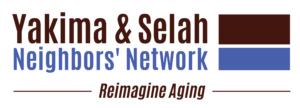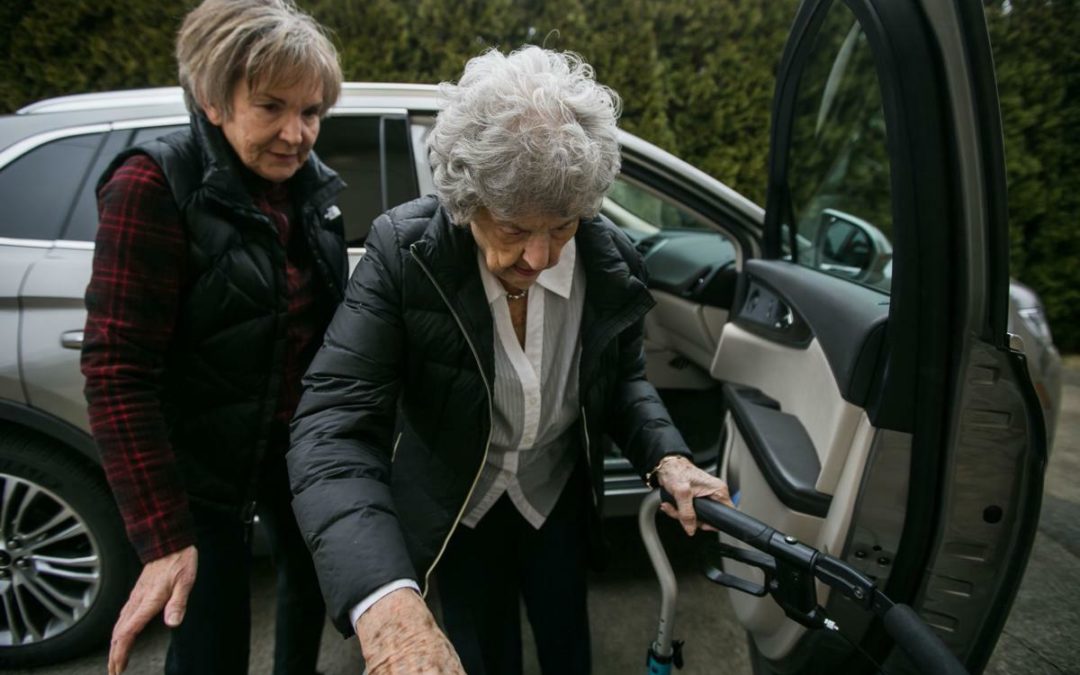Betty Myers, who is 95, has relinquished some longtime habits in recent years. She doesn’t drive and leaves certain jobs around the house to others.
Myers’ husband, Dick, died in 2011 and she lives independently in Yakima — and wants to keep it that way as long as possible. Her son and daughter and their spouses, along with two great-grandchildren, drive her to medical appointments or the grocery store when they can. But when they cannot, she relies on a volunteer-based nonprofit organization, the Yakima & Selah Neighbors’ Network.
“I have a lot of people that can help, but sometimes they’re all busy at the same time,” said Myers, a member of the group for a couple months. “It’s just wonderful to have somebody that you can call. … I used it to go the grocery store, the drugstore, to go to the dentist and I’ve used it go to the doctor.”
The volunteer-based nonprofit organization has provided limited services to a few seniors since it was incorporated in the summer of 2017. That’s changing soon with plans to hire the group’s first program manager in preparation for the official launch of the network, also known as YES Neighbors, on April 1.
Annual membership fees are $300 for a single person or $400 for a household. Because there aren’t many seniors participating at this point, most funding has come from donors. Board members expect that will change once it begins accepting members, or clients. It has been training more volunteers in anticipation of that.
“It’s taken us awhile to figure out how we could get to the point to accept members,” said Mary Lou Rozdilsky, president of the network. “One of the biggest challenges we’re facing now is donor support. Eventually we’re hoping up to 40 percent (of funding) comes from memberships.
“We’re trying to keep memberships affordable. But we’ll still need donors and grants.”
The group’s costs include the program manager’s salary, insurance and technology, including software that pairs volunteers with people who need assistance.
“The infrastructure is in place. We just need someone to coordinate, especially as we add members,” Rozdilsky said.
With the mission of keeping seniors living at home as long as possible, the network connects people with others who care — social interaction is crucial as people age — along with practical help around the house, rides and a link to trusted community resources.
Many people want to remain in their homes as they age, Rozdilsky said. At the same time, people often need more help to do so.“The fact is 10,000 people every day are turning 65,” she said. “We have issues of the danger of falls, of isolation. Residential care is expensive. We really feel that many people end up in residential care because they think there is no other option,” she said.
National model
YES Neighbors is based on a national model, the Village to Village Network. There are more than 350 such communities throughout the United States, and 16 in Washington. More are in development, like the Yakima Valley group.
The Village to Village Network helps communities establish and manage their own Villages. It began in Boston in 2002 when a group of senior neighbors decided they wanted to help each other remain living in their own homes as long as possible.
“It’s hard for parents to admit they need help,” Rozdilsky said. “There’s a feeling that when you ask for help, you lose your independence.”
But even those with family can’t rely on them all the time for help. YES Neighbors volunteers can step in when necessary, as in Myers’ case. Others have children who live far away, while some are single and without children, sometimes referred to as “elder orphans.”
In becoming a member of YES Neighbors, “You’re one phone call away from getting help at home, rides, help with small tasks in the house, the yard,” Rozdilsky said. “You can get rides to events.”
Social connections are available, noted board member Inga Wiehl.
“The more I work with this organization, the more that strikes me, how lonely people are,” Wiehl said.
YES Neighbors is not an emergency service, health care provider or residential facility. Members get help with practical concerns like household challenges, technology, transportation and emergency pet care by vetted volunteers.
The organization also links seniors to trusted professional services in the community through a list of preferred service providers.
“If there’s something we can’t do for safety reasons, we refer to a professional,” Rozdilsky said.
Staying engaged
And perhaps most important to some, YES Neighbors will offer educational, personal enrichment and social activities within the network and in the community in response to people’s interests.
“Each one is very personal to its community. Members drive the organization,” Rozdilsky said. “They can shape the organization.”
Social support is especially important, Wiehl said. Members stay more active and engaged and feel less isolated. They get out of their homes.
“People fall through the cracks,” she said. “They don’t qualify for hospice but they can’t really get around very well. So they sit in front of a TV all day with no human interaction.”
Barb Heinzen, volunteer/member coordinator and board member, noted that anyone can join. People don’t have to require the services immediately.
“Some join because they anticipate needing this in the future,” she said.
In looking to other Village to Village groups for inspiration, YES Neighbors board members especially like the example of Methow At Home, the network for that Washington city. Learn more at online at methowathome.org.
While each network reflects the needs of its members, common threads run through each group — a little bit of help makes a big difference in ensuring a good quality of life as people get older and ongoing support — Village “neighbors” helping each other, as literal neighbors did on a regular basis decades ago, Myers said.
And sometimes it’s just nice to have the company.
“Just getting a ride isn’t the issue. You’re getting a ride from someone who’s getting to know you,” she said.

